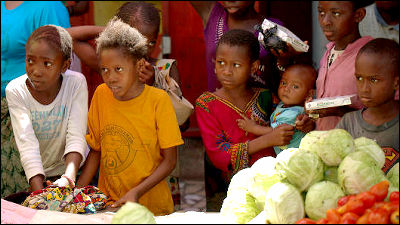What helps to spread infection with Ebola hemorrhagic fever?

ByEuropean Commission DG ECHO
"Ebola fever heat"Is a terrible infectious disease with a fatality rate of 50% or more, and some viruses have a mortality rate exceeding 80%. The first time Ebola virus was discovered in 1976, Ebola virus has become popular in Guinea in February 2014 which has been over 30 years since then and continues to expand.
However, about Ebola hemorrhagic fever "I know the name but I do not know anything more about details" "Why is that so popular? The movie that summarizes what is what you should know now is as follows.
What You Need to Know About Ebola - YouTube
Ebola hemorrhagic fever is a kind of infectious disease also called "Ebola virus disease".
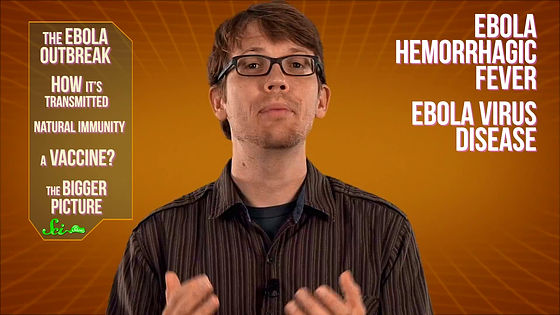
There are five kinds of viruses in Ebola virus causing this.
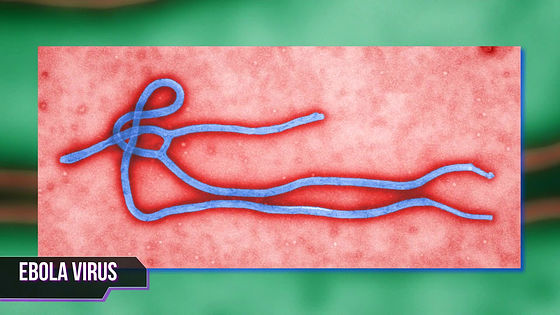
Zaire Ebola virus (ZEBOV), one of them, is the first Ebola virus discovered in 1976.
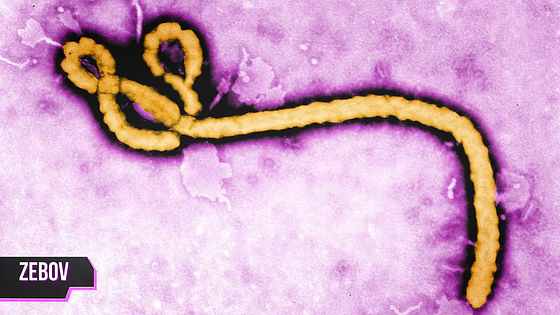
Since ZEBOV is a virus found in the Ebola River in Zaire (now the Democratic Republic of Congo) at the time, the name of infectious disease was named "Ebola hemorrhagic fever" from here.
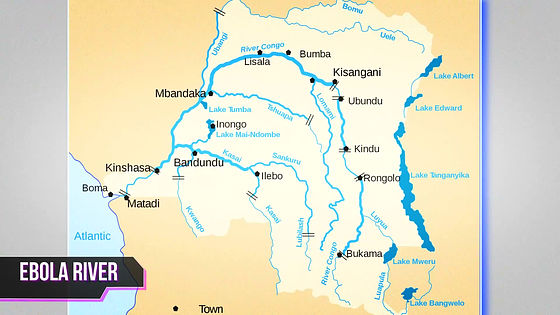
Up to now, the number of patients infected with Ebola hemorrhagic fever was 1323, of which 729 who died were fatalities of about 55%.
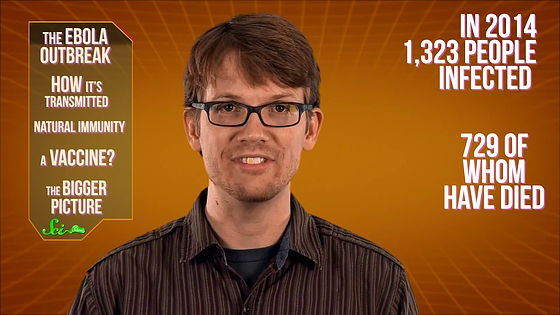
Ebola bleeding fever is prevalent mainly in West Africa, but this seems to be expanding mainly in the city of Lagos of Guinea, Sierra Leone, Liberia, Nigeria.
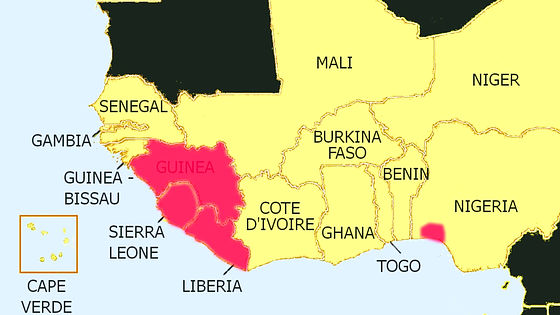
ZEBOV which is the first Ebola virus found. When infected with this, the average death rate is 83% on average.

The characteristic of Ebola hemorrhagic fever involves severe bleeding as its name implies.

Also, if you are infected with Ebola virus, vomiting and diarrhea begin, blood pressure falls and the systemic circulatory system of the infected person does not function ... ...
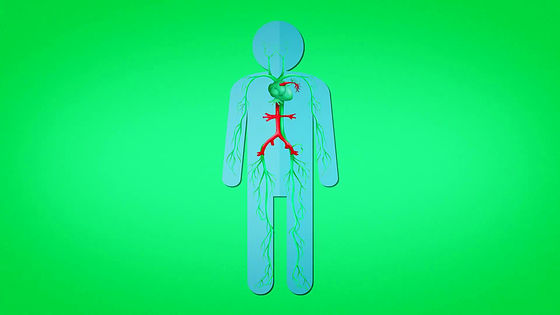
Internal organs cause malfunction.
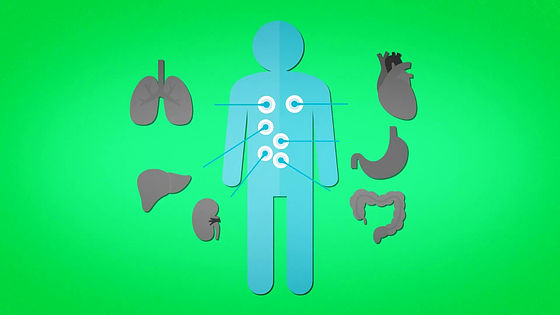
Ebola is not an airborne virusTherefore, it is the main thing that the infecting route "touches when the infected person's blood, secretions, excretions, vomitions and the like scatter".

So it does not mean that you are infected because you are nursing a patient with Ebola outpatient fever.

In addition, it is said that bats first infected Ebola virus with humans.

Ebola virus has no vaccine. However, the pro type of vaccine seems to be developing variously.

One Ebola vaccine currently under development is one using alkaloids invented by a biologist at Boston University. Alkaloid is an organic compound having the effect of preventing the growth of virus, cabbage of nicotine and tea of tobacco, morphine of poppy etc are also alkaloids.

Moreover, although it is crowded around the world with "Ebola, Ebola!", 1.2 million people die in AIDS every year in Africa ... ...

It is said that 600,000 people die every year in malaria. Even though the mortality rate of Ebola hemorrhagic fever is high, the diseases that really are feared by people in Africa may be other things.
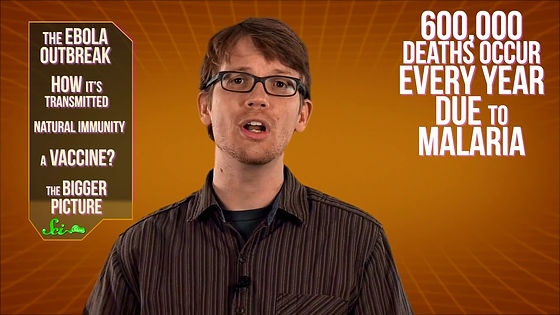
Ebola virus has no fear of airborne infection and it does not infect as long as it does not touch the body fluid etc. of the infected person, but why is the infection spread so far? TIME analyzes why the Ebola virus, which is supposed to be relatively infectious, is prevalent, due to "fear and hoax" caused by excessive coverage.
Ebola: Rumor and Confusion Make It Harder To Stop The Outbreak - TIME
https://time.com/3092855/ebola-fear-rumors/

The only way to prevent the spread of Ebola virus infection is to identify the infected person, isolate it, and investigate the suspected person after infection. However, it is said that this is not going well with the current pandemic.
"There is no cure" or "I will not cure" no matter where you look, people say "Why do I have to go to the hospital?"International Medical CorpsSean Casey, leader of the Ebola emergency response team. In Liberia, Casey says that wasteful disarray has been created by excessive coverage of Ebola virus.
Moreover, those who infected with the Ebola virus due to the influence of these reports have changed their names and made good use of their hands so that they are not noticed that they are infected, as a member of an international support group in Liberia Ingrid Gercama, nursing Ebola outpatient fever patient, talks about the situation. From these circumstances, "NGOs are trying to spread more positive messages than now, 40% of infected people survive rather than saying that Ebola is a fatal disease or there is no cure. I am trying to emphasize that I am, "commented Gercama.
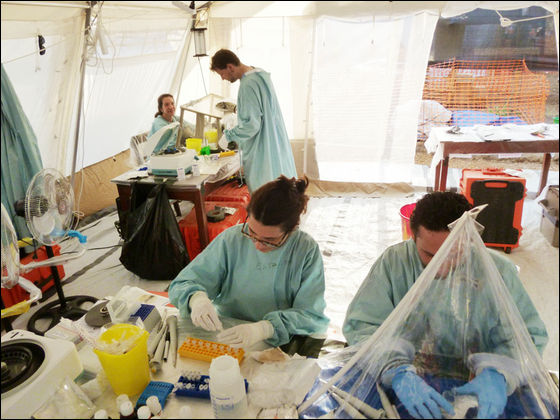
ByEuropean Commission DG ECHO
"Fear" for Ebola is rapidly spreading in West Africa.Telegraph's reportAccording to Konakli, the capital of Guinea, it has been revealed that the hospital had left patients for about five hours after the man collapsed on the street, but it is unknown whether this patient was infected with Ebola virus. Also, in Liberia, news siteThe Liberian ObserverBut,"Ten people died after drinking water contaminated with Ebola virus"We are reporting unconfirmed information.
Also, at Douala in Liberia, Ebola patients are trying to treat them with exorcism, doctors recommend rubbing the limes in the body, onion meets the Ebola virus is recommended private therapy. In addition, an unscrupulous merchant is selling the "Ebola virus vaccine" which should not exist at an unreasonable price, and in Nigeria similar deterrent therapy is rampant.
Besides, "A curved person of a certain mind swept a rumor that" If you mix salt with hot water, you can prevent infection with Ebola virus "by using all means of communication," said Onyebuchi, the welfare minister of Nigeria Mr. Chukwu commented. Mr. Chukwu then issued a statement that all these folk remedies are lies, but according to the Nigerian newspaper the rumor is "due to too much salt ingestion two people died and 20 people were hospitalized That thing.
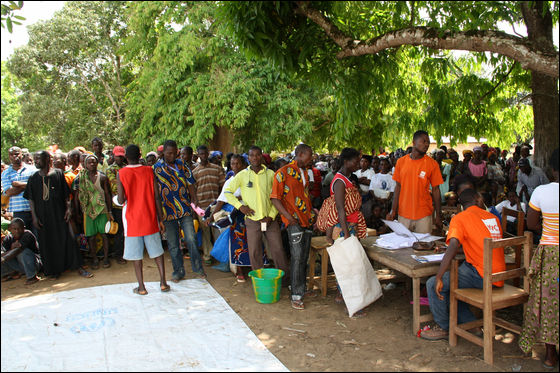
ByDFID - UK Department for International Development
Currently in Liberia international support groups and UNICEF cooperate to take measures against Ebola,The remains of the infected person are left on the streetIt is clear that the shortage of labor is done. Meanwhile,Doctors Without BordersAnd the staff of Liberian Ministry of Health are infected with Ebola virus and part of aid organizations have also decided to withdraw from Africa, so manual shortage is likely to become more serious.
Related Posts:

